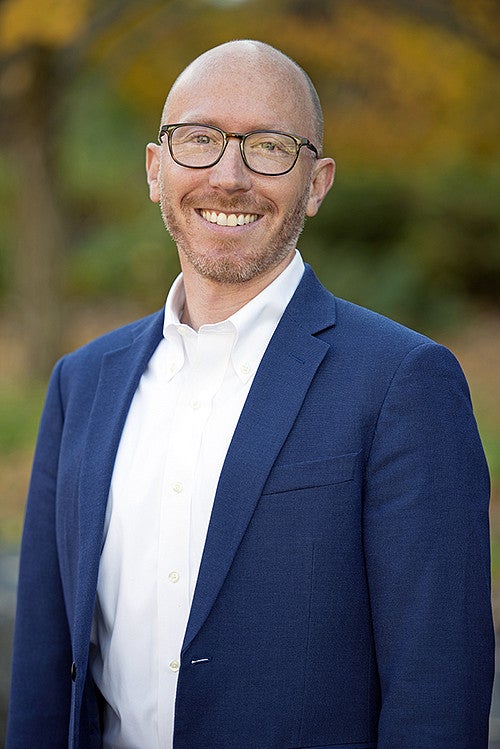
Learn more about David Liebowitz, EdD, Assistant Professor of Education Studies, through our Faculty Spotlight series.
Hometown: Washington, DC
Primary research interest: I study policy and leadership strategies to improve schools
Favorite Book or Movie: We’re in Oregon, so I’ll say Sometimes a Great Notion and Stand By Me
Hobbies: Running, hiking, and skiing in the Cascade Range and chasing after my three kids
Say “Hello”!: www.daviddliebowitz.com
What brought you to the University of Oregon?
For decades, faculty in the College of Education have generated valuable insights and strategies for schools and teachers around the country via their applied research. I was excited to join the team. Plus, I fell in love with the Three Sisters Wilderness area during a two-week long hike on the Pacific Crest Trail 15 years ago and I’ve been scheming how to get back out here ever since. And, my wife grew up in Veneta, so our kids have lots of cousins close by now!
What is the focus of your current research?
I’m a former middle-school teacher and principal and have worked as a policy advisor to the New York State Commissioner of Education, the Massachusetts Secretary of Education and internationally with the Organisation for Economic Co-Operation and Development (OECD). My experiences in school leadership and policy implementation ground my research interests.
Generally, I study the challenges facing schools with concentrations of traditionally under-served students and effective policy and leadership strategies to address these challenges. My research interests include: the effects of policies intended to reduce school segregation, how students’ classmates affect their learning, school leadership, teacher evaluation, school discipline, and school improvement strategies.
Right now, I’m working on a few projects with the Oregon Department of Education to look at how principals contribute to the teaching and learning environments in their schools. As one example, I’m examining how elementary- and middle-school principals’ leadership approaches might influence the longer-term trajectories of students in high school and college. One really cool (if a little data-nerdy) part about this project is getting to trace the school histories of every student in Oregon from when they enter Kindergarten until they graduate from colleges around the country. It’s a reminder of the knowledge-generating potential of large-scale data, and the importance of responsible and ethical data stewardship.
How do you hope your work makes an impact? Why do you think it’s important?
When I was a principal, I was frequently struck by feelings of awe and humility at the responsibility that families had vested in our school. Most students in my school were first- or second-generation immigrants from the Northern Triangle in Central America. By themselves or with their families, they had made long, dangerous, and sometimes abusive trips north. They received minimal formal supports and were sometimes told in no uncertain terms by political leaders that they were unwelcome in the United States. And yet, they were motivated to come based on a belief in potential—their own, their kids’, and their new country’s. I could sense the deep trust families placed in us to help their children access better opportunities.
This belief in the potential of education to improve young people’s lives—always aspirational, never a full reality—exists in different forms in communities and schools around the state and country. I see my work as contributing to a body of knowledge that can provide concrete tools and strategies to policy makers, principals, and teachers on how to best honor the trust that children and families bestow on them.
What message would you like to share with students considering coming to the College of Education?
You will engage with a rich set of practical, theoretical, methodological, substantive, and ideological perspectives. Our future teachers graduate with strategies to teach early readers how to decode words and with a deeper awareness of how schools have been hostile environments for some students. Our future principals take on new roles, conscious of strategic approaches to resource management and tools to challenge bias in student disciplinary hearings. Our future researchers leave as experts in one methodological tradition and conversantly respectful in others. In short, if you are someone who is seeking a toolkit to help you grapple with the messiness of the real world, the College of Education is for you.
What do you love about living in Eugene?
I like being an hour from the mountains and an hour from the coast. I love going for runs on the Ridgeline Trail. I love being able to load our kids on my cargo bike, drop them off at school and get to my office all within 15 minutes. Eugene’s pretty small, but to be able to go to the Hult Center for a play, Hayward Field for a track meet, the Eugene Public Library for story time, the Museum of Natural and Cultural History to check out the Fort Rock sandals (all without paying for parking!) makes me feel pretty lucky to be here.
